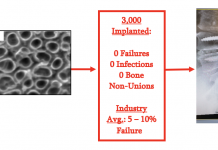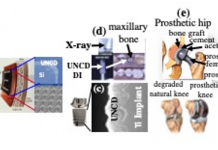Open Access Government produces compelling and informative news, publications, eBooks, and academic research articles for the public and private sector looking at health, diseases & conditions, workplace, research & innovation, digital transformation, government policy, environment, agriculture, energy, transport and more.
Home 2024
Archives
Floreon technology, redefining polylactic acid
Dr Andrew Gill, CTO, and Dr Sandrine Garnier, CEO of Floreon Technology Ltd., explain how the company is redefining Polylactic Acid, starting with who they are and what they offer.
Predicting cochlear implant performance: Impact of demographic, audiologic, surgical factors, and cochlear health
Amit Walia, Matt Shew and Craig A. Buchman from Washington University School of Medicine, explain the challenges of understanding variables or factors informing CI performance and how this can be addressed.
How do we prepare our youth for a world of big data?
Nancy Butler Songer, Associate Provost of STEM Education at the University of Utah, considers the importance of developing primary and secondary school programs in STEM fields that support students in developing the competencies with big data.
Confronting digital ageism: Towards a better aging future
Kim Sawchuk, Professor of Communication Studies at Concordia University, explores tackling digital ageism to build a better future for aging.
A portable quantum simulator on a silicon chip
Mher Ghulinyan, Senior researcher at the Fondazione Bruno Kessler’s Centre for Sensors and Devices, tells us about the EPIQUS project and the creation of a cost-effective, user-friendly, and high-performance quantum simulator based on full integration of silicon nitride photonics with silicon electronics.
Towards digitalisation with zero-energy consumption sensor system
RISE Research Institutes of Sweden, a leading research and innovation partner, describes its journey toward digitalisation with a zero-energy consumption sensor system.
Wrestling with the deepfakes: Detection and beyond
Siwei Lyu, SUNY Empire Innovation Professor from the University at Buffalo, State University of New York, delves into detection and beyond in the realm of DeepFakes, starting with a look at what they are.
Transnational flows of living cultural heritage: African screen media in the world
Dr. Sheila Petty, FRSC, Professor of Media Studies and SaskPower Research Chair in Cultural Heritage, at the University of Regina, explores transnational movements of living cultural heritage in African screen media.
Innovative climate research for guiding policy-making
Professor Phoebe Koundouri leads AE4RIA and UN SDSN Global Climate Hub, participating in innovative climate research impact projects.
Pavitra Ganga successfully demonstrates robust and low-energy wastewater technologies in India
Paul Campling is the coordinator and Anshuman is the scientific coordinator of the EU-India Horizon 2020 project Pavitra Ganga that ran from 2019 until the beginning of this year. This research and innovation project brought European and Indian partners together to collaborate on tackling wastewater treatment challenges and to unlock some of the resource recovery opportunities.
Tuneable phononic crystals and topological acoustics
Sourav Banerjee, Professor from the University of South Carolina, navigates the field of tuneable phononic crystals and topological acoustics.
Hearing and auditory research for cochlear implant outcomes
Amit Walia, Matthew Shew, and Craig A Buchman from Washington University School of Medicine, guide us through hearing and auditory research predictive models for cochlear implant outcomes in adults.
Toward human systems integration maturity
FlexTech Chair’s founder, Professor Guy André Boy, briefly traces the development of human systems integration.
Energy harvesting for unlimited lifetime systems
The Internet of Things (IoT) and services, wireless sensor networks (WSNs), trillions of sensors, Industry 4.0, and digitalisation – all these are hungry for data, and their common challenge is energy.
Digital twins shake up heat exchanger design: Vestas Aircoil and University of Sheffield forge...
Beyond blueprints, beyond prototypes, lies a future where humans and machines design in harmony. Dive into the groundbreaking collaboration between Vestas Aircoil and the University of Sheffield, where digital twins unlock sustainable engineering breakthroughs.
Reducing data volume in big data: Parallel processing based data filtering techniques
Professor Shikharesh Majumdar from Carleton University examines reducing data volume in big data, focusing on parallel processing based data filtering techniques.
Opinion: Do universities help or hurt innovation?
Do Universities help or hurt innovation? Find out in this 25-year academic entrepreneur’s anecdotal perspective of starting companies and developing implants. Thomas J. Webster shares his opinion here.
Sensory roles in reading skills: The print-to-speech model
While it is easy to recognise the necessary role that vision plays in reading, it is important to know that many other senses contribute to the acquisition, refinement and maintenance of reading skills including sound, touch and motor coordination, to name just a few.
Ultrananocrystalline diamond (UNCD™) coating for new-generation implantable medical devices/prostheses
In this materials science piece, Orlando Auciello, describes the development of a unique multifunctional/best biocompatible ultrananocrystalline diamond (UNCDTM) coating for new-generation implantable medical devices and prostheses.
The rising tide of the autonomous ships market
Anastasiya Azarko, Junior Innovation Consultant and Marco Molica Colella, Managing Consultant at CiaoTech – PNO Group, tell us about the autonomous ships market and some of the initiatives that are broadening capabilities within the maritime industry.



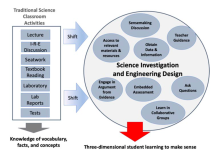
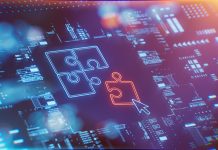

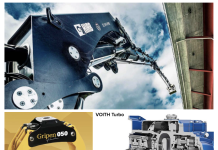
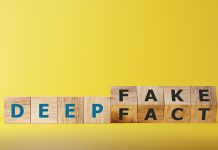




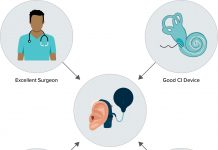
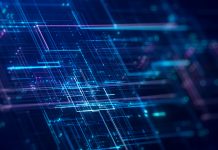
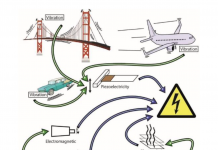

![Reducing data volume in big data: Parallel processing based data filtering techniques Figure 2: Example of Filtered Video Frame [from (2)]](https://www.openaccessgovernment.org/wp-content/uploads/2024/01/Figure-2-218x150.png)
